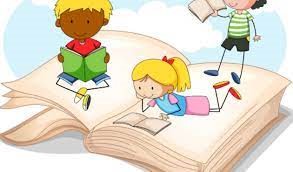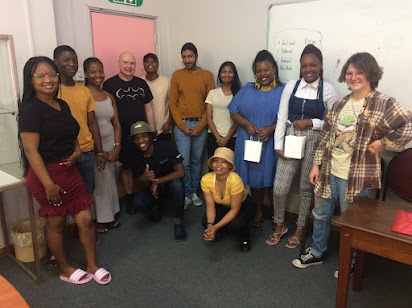

 Mfezi Mjwara Goitsemang Ncongwane Sushiela Naidoo
Mfezi Mjwara Goitsemang Ncongwane Sushiela NaidooCOVID-19 brought more of our lives online and increased the
way we connect through technology. For many at UKZN, this offered new benefits
such as the ability to work or study from home and more flexibly in learning and working. with the mode of study/work
moving to the online platform. However, for many this reality reinforced the
digital divide.
The digital divide is essentially defined as “the gap
between those with internet access and those without.” With the pandemic creating
more of a reliance on our devices and the ability to perform daily functions
using technology, those who do not have access are left struggling. The digital
divide typically impacts rural communities and low-income households the most.
This is no big surprise, considering income is the largest determinant of
whether or not a person has internet access alongside the lack of technological
infrastructure in rural areas.
The way the pandemic has impacted our world provided an
opportunity for the UKZN Library Services to make a real impact in supporting
the University community in more innovative ways,
when they needed it the most.
This challenge formed a springboard for UKZN Library Services
and librarians to create more technology equity [Rev1] and bridge the digital divide in accessing online resources. This meant that every
student would have equal access to digital technologies and internet access. UKZN assisted by providing laptops
and data to all students.
Librarians at UKZN responded with a number of interventions like the provision of online information
service delivery and online training. These included the easy and efficient access to online journals, e-books, course
reserve material and theses which were
facilitated through online Library training. With these interventions, the
library encouraged and continues to encourage, students from undergraduate to postgraduate
levels of study to attend in order for
them to achieve success in their academic journey. The online services enable local
students to reach resources and attend training from their homes and further
afield, students from other countries like Namibia, Tanzania, Nigeria etc.
Students from all backgrounds are provided with the fundamental skills
so that there is a smooth and efficient transition to online learning at UKZN.
The library webpage can be accessed at https://library.ukzn.ac.za/# . All training materials and recordings
can be accessed from UKZN Online Training 2023. The Libguides https://libguides.ukzn.ac.za/c.php?g=1043478&p=9216095 provide fundamental information to
assist with academic learning. The table below provides a list of some of the training
that was/is conducted via Zoom, presented by librarians, academics and vendors, at regular intervals throughout
the year. These
training sessions are also offered in a classroom setting that is face to face.[Rev2]
|
v iCatalogue |
v eBooks collection |
v EBSCOhost |
|
v Google scholar |
v My Library Account |
v Referencing |
|
v Inter Library Loans |
v JSTOR |
v Literature Review |
|
v Literature reviews |
v NVivo |
v ProQuest |
|
v Search Strategies |
v Scoping reviews |
v Science Direct |
|
v Sabinet online |
v SPSS |
v Open Access v Publishing platforms |
|
vUKZN
Software tutorials |
v Web of Science |
v CAES: Engineering village |
How do these programmes
benefit students at UKZN?
v Helps low performing students catch up with their better performing classmates.
v Enhances
the students’ critical thinking.
v Improves
the ability of students to understand and evaluate computerised materials.
v Makes it
easy for students to adapt to university expectations.
v Supports
educationally disadvantaged students who are under-prepared despite meeting
minimum admission criteria.
v Helps
students become independent learners in their own spaces and time.
Conclusion
Educational background has a great
influence on the performance of students when they enter university especially during their first-year level of their studies. Many of the high/secondary
schools in South Africa lack exposure to scholarly information and online
scholarly information resources, good training and
standard libraries to prepare learners for the university experience. This
makes it very difficult for students to cope with the demands of university level studies. UKZN Library Services
play a pivotal role in making sure that university entrants settle in and meet
academic expectations. In other words, the performance of these students is
bound to be improved if they attend library training and academic literacy programmes offered by the institution.
References
Chalita, S & Erik, B. (2011, September
18-21) Understanding the digital divide: A literature survey
and ways forward [Conference
Paper]. 22nd European Regional Conference of the International
Telecommunications Society (ITS): "Innovative ICT Applications - Emerging
Regulatory, Economic and Policy Issues. Budapest, Hungary https://www.econstor.eu/bitstream/10419/52191/1/672623358.pdf[Rev1]
Conley, D. T. (2007). The
Challenge of College Readiness. Educational leadership, 64(7), 23 -29.
http://www.ascd.org/ASCD/pdf/journals/ed_lead/el200704_conley.pdf
Hilbert, M. (2015) Digital
divide(s). ResearchGate, 1-7. https://www.researchgate.net/publication/319588474_Digital_Divides
Van
Dijk, J. A. (2012). The Digital Divide turns to Inequality of Skills and Usage.
The Evolution of the Digital Divide, 57 – 75. https://www.utwente.nl/en/bms/vandijk/news/The%20Evolution%20of%20the%20Digital%20Divide/Evolution%20of%20the%20Digital%20Divide%20Digital%20Enlightment%20Yearbook%202012.pdf









